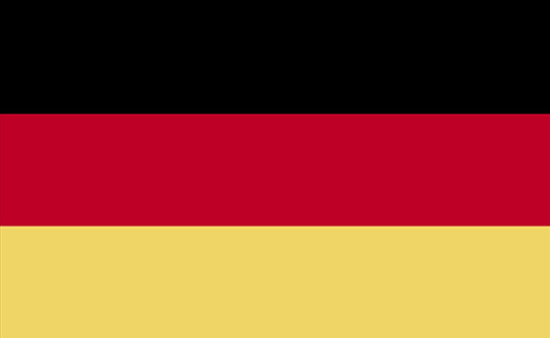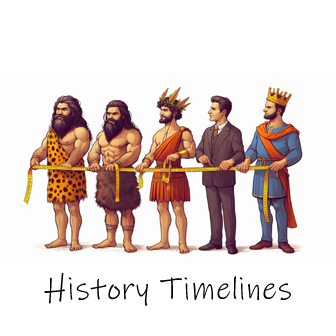|

About the German flag, according to the Bundestag:
"The origins of black, red and gold cannot be identified with any degree of certainty.
After the wars of liberation in 1815, the colours were attributed to the black uniforms
with red piping and golden buttons worn by the Lützow Volunteer Corps, which had been
involved in the fighting against Napoleon."
Governments of Germany
Before the year AD 800, Germany did not exist as a unified state with a single government.
Instead, the region was composed of various Germanic tribes.
17th century - 1st century BC
Before the 1st century BC, in other words, before the Romans arrived, the territory was primarily
inhabited by various Germanic tribes, who had established themselves in central Europe and
Scandinavia as early as the 17th century BC.
They spoke Indo-European languages and developed distinct cultural identities.
These tribes had their own forms of governance, typically led by chieftains or kings.
Tribal leaders were often elected by free men or chosen based on hereditary succession.
Decision-making often involved assemblies of free men.
Major tribes included the Goths, Vandals, Ostrogoths, Visigoths, Lombards, Franks, Jutes, Angles, and Saxons.
1st century BC - AD 800
Various tribes such as the Franks, Saxons, Alemanni, and Bavarians occupied different parts of the region.
Roman Influence
From the 1st century BC to the 5th century AD, parts of what would become Germany were under Roman rule.
The Romans established provinces such as Germania Superior and
Germania Inferior along the Rhine.
These areas were governed by Roman officials and followed Roman law.
However, Roman control was limited, and many Germanic tribes remained independent beyond the Rhine and Danube frontiers.
Merovingian Dynasty
From 481 - 751, the Merovingian dynasty ruled over a large part of the region.
The Merovingians created a Frankish kingdom that included much of modern-day Germany.
They established a system that combined elements of Roman administration with Germanic tribal customs.
Individual tribes within the kingdom often retained some autonomy and their own legal codes.
Early Carolingian Period
In 751, the Carolingian dynasty came to power.
Under Charlemagne, who became king in 768, the Frankish kingdom expanded to include all of Germany.
The Carolingians further developed the administrative system, incorporating both Roman and Germanic elements.
They established a more centralized form of government, though local rulers still held significant power.
This patchwork of tribal territories, kingdoms, and areas of Roman influence,
contributed to the complex political landscape that preceded the formation of the Holy Roman Empire in AD 800.
More History
|
| |
Deutschland vs. Germany
"Deutschland" is the endonym (internal name) used by Germans themselves,
while "Germany" is an exonym (external name) with roots in Latin and ancient tribal encounters.
The names "Deutschland" and "Germany" have different origins and etymologies:
:: Deutschland
The German name for their country, "Deutschland," has its roots in Old High German.
It comes from the word "diutisc," meaning "of the people".
"Land" simply means "land".
Together, "Deutschland" essentially means "people's land" or "land of the people".
This name has been used by Germans to refer to their country since around the 8th century.
:: Germany
The English name "Germany" has a different origin. It derives from the Latin "Germania"
"Germania" was first used by Julius Caesar to refer to tribes in northeastern Gaul.
The earliest use of "Germany" in English dates back to around 1520.
Before that, English speakers used terms like "Alman" and "Almain," derived from the name of the Alemanni tribe.
Why, oh why?
The reason for the different names stems from historical contacts between various peoples.
Romans encountered the "Germani" tribes and called the region "Germania".
Latin-based languages like French and Spanish use names derived from the Alemanni tribe (e.g. Allemagne, Alemania).
Northern European languages use names based on the Saxon tribe. In Finnish, for example,
Germany is Saksa "Land of the Saxons."
Slavic languages use names derived from the Proto-Slavic root němъ, meaning "unclear" or "hard to understand".
This doesn't imply that Germans were actually mute, but rather that they spoke a language
unintelligible to Slavic speakers, i.e. "those we can't understand".
The Polish use Niemcy, Czech: Německo, Slovak: Nemecko, Slovenian: Nemčija, Croatian: Njemačka
By the way, the Greeks used a similar method in naming foreigners with the term "barbarian", which originates from
the ancient Greek word βάρβαρος (bárbaros), and meant "Babbler" or someone who speaks unintelligibly, i.e. a non-Greek speaker.
Famous Speeches in History
Browse the speech archive:
 Speeches by Topic A-Z
Speeches by Topic A-Z
 Speeches by Speaker A-Z
Speeches by Speaker A-Z
 Speeches in Chronological
Order
Speeches in Chronological
Order
 Speeches Given by Women
Speeches Given by Women
 Speeches Given by African-Americans
Speeches Given by African-Americans
 Speeches Given by U.S. Presidents
Speeches Given by U.S. Presidents

Attila the Hun
More about the greatest of all Barbarian rulers:
 Attila short biography
Attila short biography
 Map of Attila's empire
Map of Attila's empire
 Battle of the Catalaunian
Plains
Battle of the Catalaunian
Plains
 Who were the Huns?
Who were the Huns?
Greco-Persian Wars
Also called the
Persian Wars, the Greco-Persian Wars were
fought for almost half a century from 492 to
449 BC. Greece won against enormous odds. Here
is more:
 Battle of Marathon
Battle of Marathon
 Battle of Thermopylae
Battle of Thermopylae
 Battle of Salamis
Battle of Salamis
 Battle of Plataea
Battle of Plataea

|
|